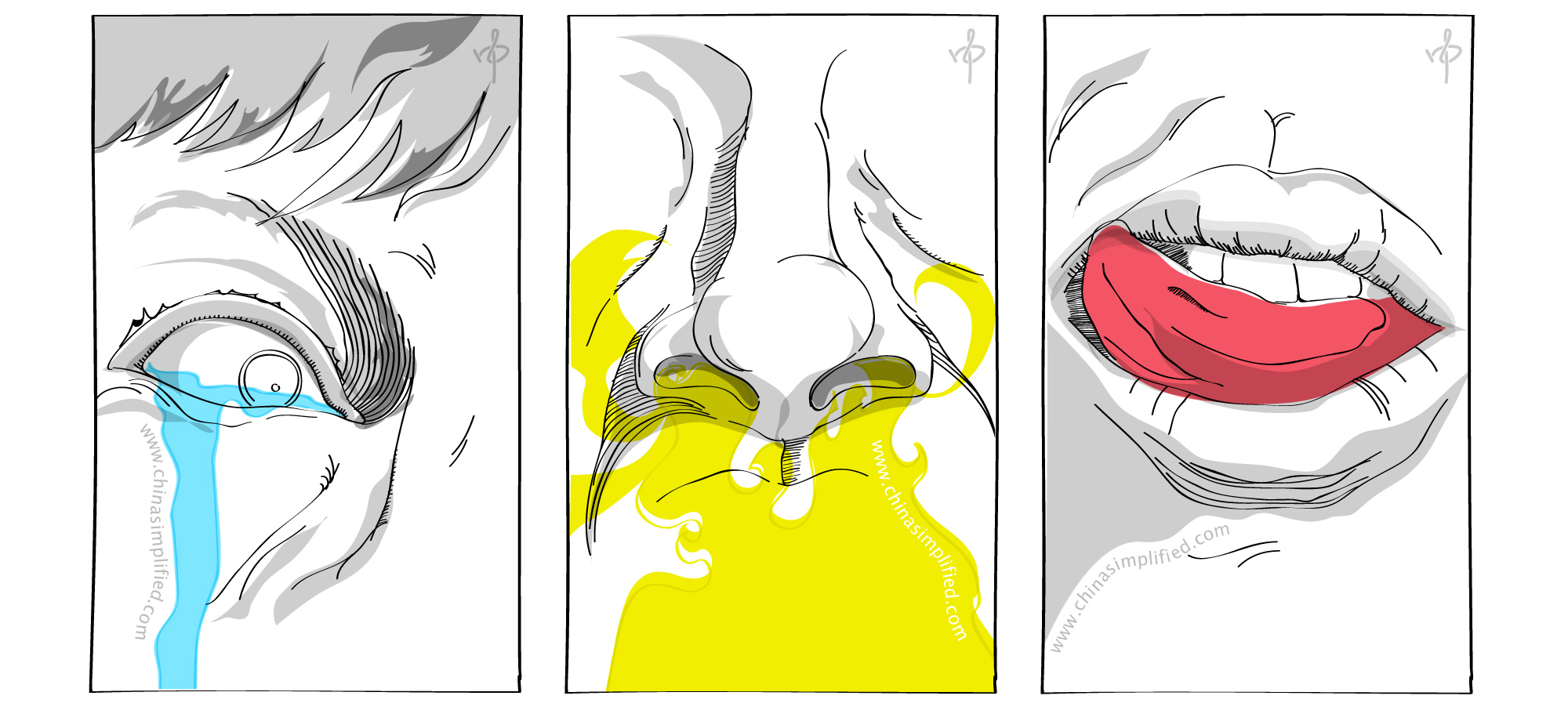China has a long tradition of foods that assault the palate. In fact, many culinary cultures have their own stinky obsessions.
Adventurous Swedes, for example, enjoy surströmming (soured herring), a northern fermented fish with a killer smell that’s become a challenge for visiting tourists. Same goes for Kiviak from Greenland, made from auks (a type of seabird) preserved in the hollowed body of a seal and served on special occasions. To the south there’s iru, made from fermented African locust beans, and kaanga pirau, a Maori fermented corn from New Zealand. And of course, our beloved stinky tofu from China, the star of this post.
The old joke about the French and their cheese works just as well if we substitute a burning affection for stinky tofu:
Put a plate of smelly cheese (stinky tofu) in the middle of a table and everyone will pull back, scrunch up their noses and say, “eww.” Except for the Frenchmen (Chinese) who will lean in and say “ah…”
It all starts when we’re young
Science tells us that a baby’s food memories may start in the womb, drawing upon flavors circulating in the amniotic fluid. So if your mom ate it, there’s an good chance you’re gonna like it.
“Hello…Mom…before I was born did you eat lots of durian?”
The creation of stinky tofu, like many great inventions, came through unintended consequences. The story goes that a young Chinese living in the Qing era attended the official examination in Beijing and didn’t have enough cash to cover his trip back to his southern hometown. He made a large batch of tofu to sell and ended up with way too much. Worried and unsure what to do, he stuck the leftovers in a jar with salt and spices. Much later upon remembering the jar, he rushed to find the tofu covered with a nasty green mold. Before dumping it in the trash, his curiosity got the better of him. One taste and he was hooked. He didn’t pass the exam, but his stinky food business was off and running.
“Smell is a potent wizard that transports us around thousands of miles and all the years we have lived.”
– Helen Keller
Modern stinky tofu comes from soybean curds soaked in a customized brine infused with meat, fish, vegetables, traditional Chinese herbs or almost anything you can imagine which then drives a fermentation process lasting several days, weeks or even months. The longer the fermentation, the more pungent the smell, the stronger the taste and the creamier the texture. Commercial factory processes speed things up, but also serve to sharpen the contrast with the really stinking stuff sold by the old school vendor still using his family’s closely guarded secret recipe. Stinky tofu is served deep fried, stewed, steamed, hot-potted or grilled, and paired with your favorite sauce, often quite spicy.
The more health conscious fans note that it’s chock full of digestive proteins, calcium and vitamin B2 and B12, with claims of beneficial yogurt-like bacteria, but honestly, who considers that stuff when they’re scarfing down something that can make an entire alley smell like rotten meat in sweaty socks. The stinkier the better, right? Just think of all those vitamins and minerals.
Did we mention that stinky tofu is a business worth a billion plus RMB a year? When our team attempted to ferret out more exact estimates, all we found was a comprehensive report on stinky tofu containing sales, marketing and industry vision selling for the bargain price of RMB9,500 (USD1,528) or USD5,500 for an English version. Maybe this is the next go-to industry after all.
Language tips and smelly expressions
In the term chòu dòufu 臭豆腐 (stinky tofu), the first character chòu 臭 consists of two parts: 自 on the top, a radical for nose, and 犬 at the bottom, meaning dog, implying a strong smell that a dog will detect and follow along. Just as the “stink” in stinky tofu can be both bad or good, chou the characters isn’t always bad or good either, as shown by these colloquial expressions:
Chòuměi 臭美 (stinky pretty) is a phrase among close friends directed, for example, towards the girl showing off a new pair of hot shoes.
Chòu xiǎozi 臭小子 (stinky lad) as defined by Pleco means “bum” or “tramp” but it’s also an expression that a young woman might apply to a young man with whom she feels some chemistry.
Chòu xiǎoniū 臭小妞 (stinky little girl) seems awful but comes off sounding as sweet as “cutie pie”.
Wǒ yào chī dòufu 我要吃豆腐 (I want to eat tofu) is an expression to definitely avoid as you’re basically admitting to being a pervert.
Looking for a special gift for the man in your life?
Get him STINKY TOFU if you love him – for it tastes like heaven.
Get him STINKY TOFU if you hate him – for it tastes like hell.









